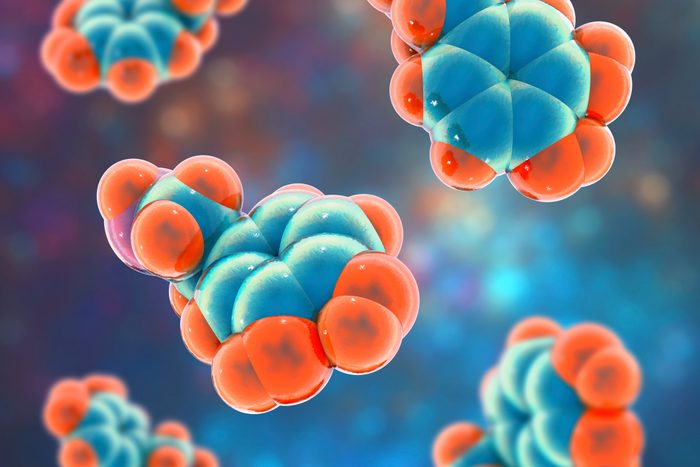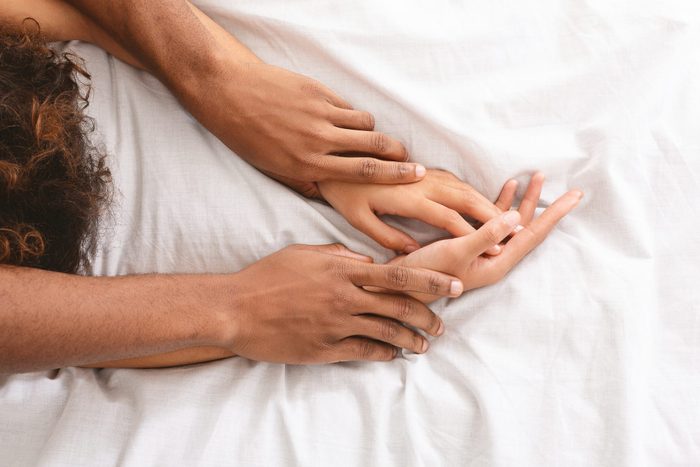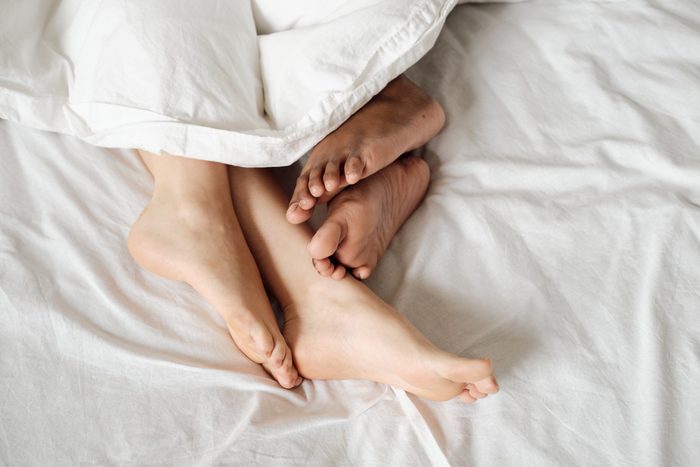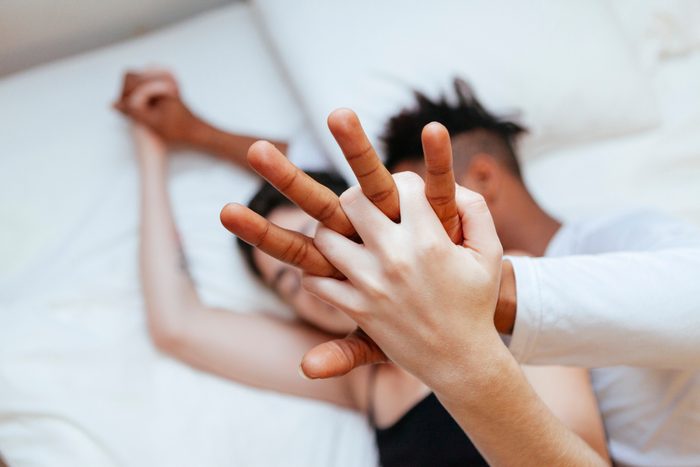
According to statistics via the Cleveland Clinic, our bodies are a bustling hub of over 50 different hormones, playing roles in everything from regulating blood sugar to controlling growth, managing our energy levels, and, yes—fueling our sexual experiences.
Ever wonder why those intimate moments produce a feeling like none other? It’s all thanks to certain hormones making their way through your system, orchestrated by none other than your brain—which, by the way, might be the most powerful sex organ you have. So which hormones are released during sex, and how do they contribute to that unforgettable feel-good moment?
Ahead, here’s what expert doctors and researchers explain about the the physiological functions that deepen connections and elevate pleasure.

Here’s the hormones that are released during sex, according to expert doctors
1. Oxytocin
Oxytocin, affectionately known as the “love hormone,” is one of the hormones released during sex particularly peaking at orgasm. It signals a bond of trust, empathy, and emotional closeness between partners, creating a profound connection.
Kia-Rai Prewitt, PhD, a psychologist from the Cleveland Clinic, highlights an added perk of oxytocin: It may actually help you fall asleep. “And if you’re getting good sleep or getting enough sleep, that can also help boost your immune system because you’re getting the rest that your body needs to recuperate,” she explains.
Oxytocin can also normalize the body’s stress levels by reducing cortisol, a hormone that peaks during times of stress.
This Is How Often Most People Masturbate, Say Doctors & Recent Data

2. Endorphins
You may think of endorphins as the hormones that release during exercise to clear your mind and help you appreciate the after-effects of the workout, which is true. But also endorphins, which are the human body’s own natural painkillers and mood lifters, play a key role during sex by ushering in a wave of euphoria, diminishing pain, and enhancing overall well-being. It can also help those who have pain during intercourse, according to Dr. Prewitt.
She notes an additional benefit of the pain-diminishing effect from endorphins: “Having regular sexual activity actually helps to build pelvic floor muscles and make [sex] less painful.”

3. Dopamine
Dopamine is the neurotransmitter is at the heart of the brain’s reward system, ensuring that sex is not only a physical act but also an emotionally fulfilling one.
Research on dopamine across both human and animal studies, such as one 2010 psychiatry paper, has revealed the hormone’s critical involvement in the entire spectrum of sexual behavior, from the initial spark of desire to the peak moments of orgasm and the satisfaction that follows.
Here’s How Often You Need to Have Sex to Possibly Slow Down Aging

4. Estrogen and Testosterone
Both of these hormones are important for sexual desire and arousal. Estrogen contributes to vaginal lubrication and enhances sexual sensation, while testosterone increases libido and is essential for the arousal phase in both men and women.
Beth Czerwony, RD, a registered dietitian at the Cleveland Clinic Center for Human Nutrition, comments on a common factor that hinders this hormonal production: Alcohol before sex can dampen testosterone levels and disrupt circulation, leading to dehydration, fatigue, and decreased arousal.
On the flip side, she points to certain foods like oysters, clams, and scallops, rich in compounds that naturally elevate testosterone and estrogen levels, potentially ramping up sexual desire. Additionally, pomegranate juice is said to increase testosterone levels, offering a tasty tip for those looking to enhance their sexual health naturally.

5. Prolactin
Released after orgasm, prolactin levels increase, which can promote feelings of satisfaction, relaxation, and contentment.
Prolactin is also thought to be involved in the refractory period in men, during which further arousal or orgasm is difficult. However, the role of prolactin in this cooldown phase is still up for debate, with a 2021 study having suggested that the connection might not be as clear-cut as previously thought.
Experts Say This Is the Surprising Age When Sexual Fantasizing Peaks

6. Adrenaline and norepinephrine
These hormones, responsible for the body’s “fight or flight” response, also enter the scene during sex to spark a surge in heart rate, blood pressure, and energy. This boost is not just about preparing for action—it directly contributes to heightened physical arousal and excitement, making the intimate experience more intense and enjoyable.

7. Serotonin
A 2017 study explored the role of serotonin during sex. This hormone has a complex role in sexual function, often acting to inhibit sexual desire and arousal, which is evident in the sexual side effects observed with SSRIs, antidepressants that increase serotonin levels. However, it also contributes to mood regulation and emotional well-being, which are foundational for a healthy libido and satisfying sexual experiences.
For more wellness updates, subscribe to The Healthy @Reader’s Digest newsletter and follow The Healthy on Facebook and Instagram. Keep reading:
